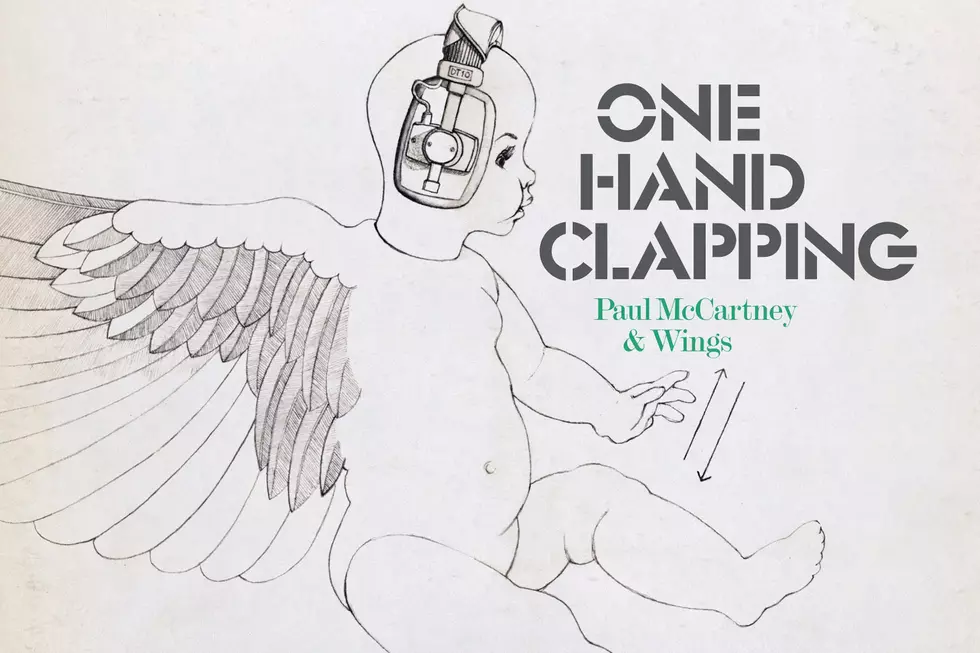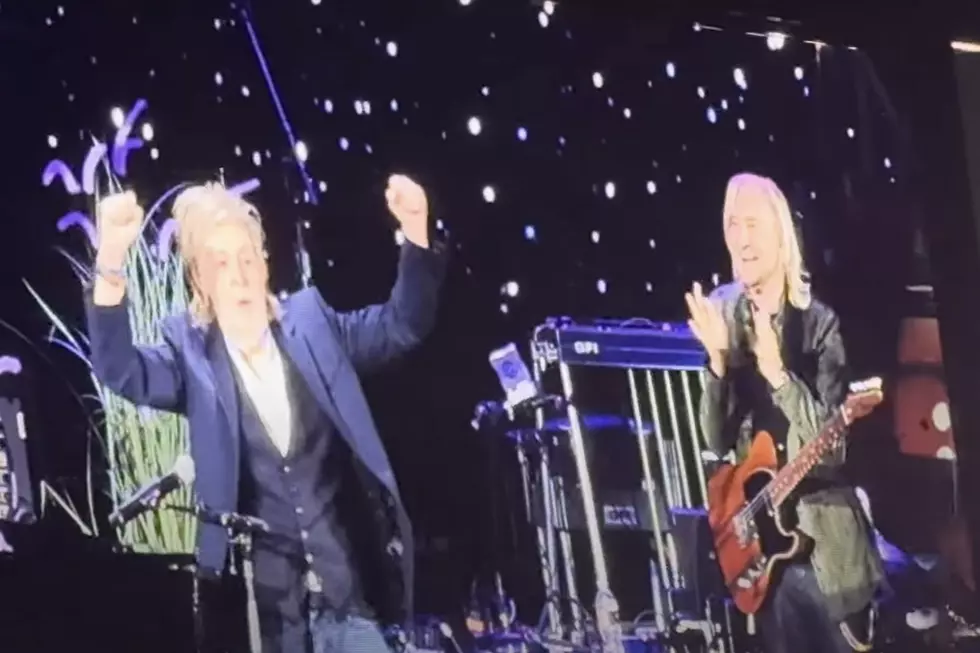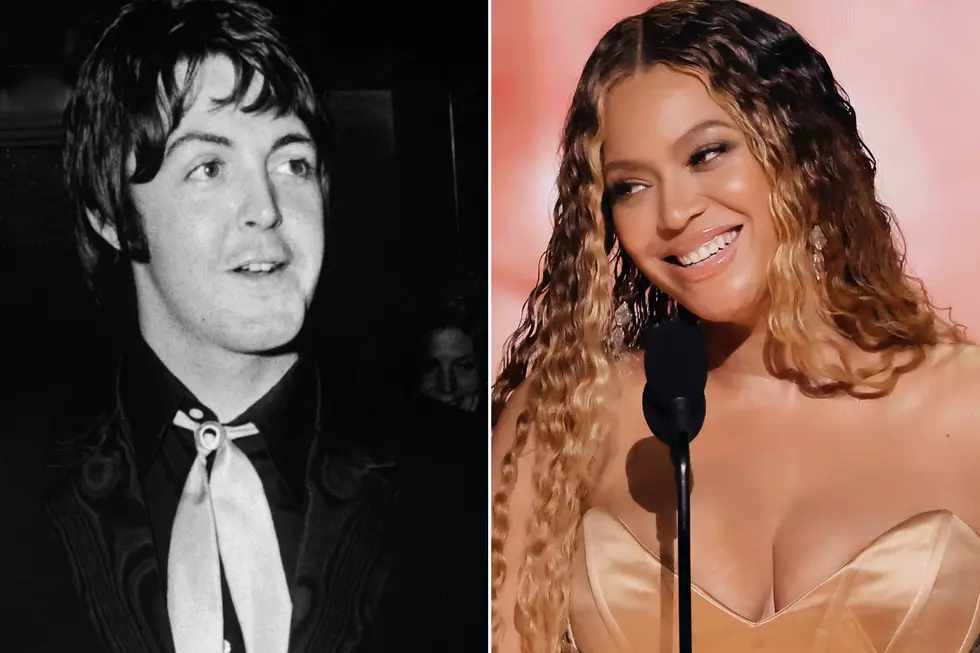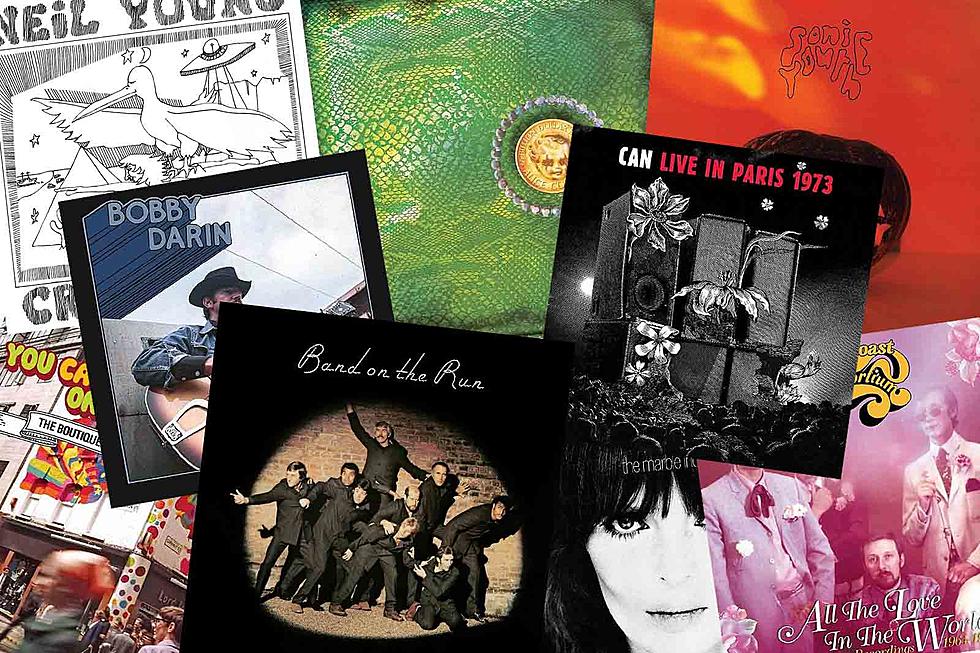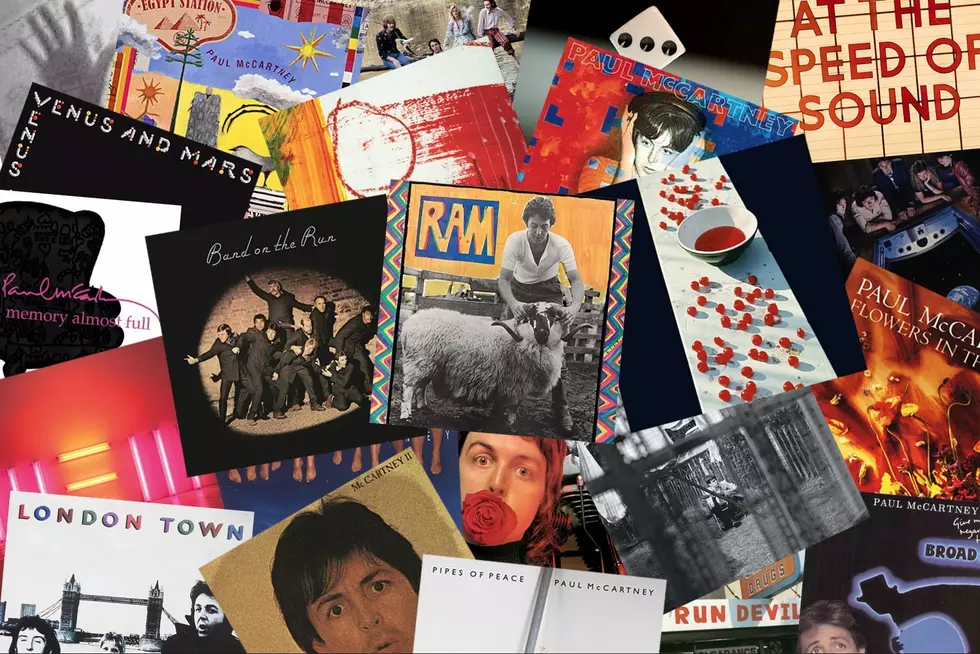
Underrated Paul McCartney: The Most Overlooked Song From Each LP
Paul McCartney is, by definition, an ubiquitous superstar. Credit nine chart-topping songs and more than 20 Top 10 hits. In fact, every single released with Wings reached the Billboard Top 40.
But with a discography stretching across 25 rock albums, including collaborations with his '70s-era hitmaking group and the Fireman, there are still plenty of nooks and crannies to explore. The following rundown of the most overlooked songs from each McCartney album stays away from all-too-familiar "silly love songs" to highlight times when the former Beatles star stretched his muse.
Occasionally, McCartney deep cuts are overlooked because he goes to creative places that simply wouldn't be suitable for radio. Other times, these songs remain just inexplicably underrated – perhaps because those smash songs take up so much of the spotlight.
We stayed away from covers-only albums like 1988's Choba B СССР and 2012's Kisses on the Bottom, as well as genre records focusing on classical (1991's Liverpool Oratorio), general weirdness (1977's Thrillington) and instrumental electronica (1993's Strawberries Oceans Ships Forest). The idea was to dig more deeply into his mainstream original recordings.
In this way, our list of the most overlooked songs from each Paul McCartney album might just reveal something knew about an act we've known for all these years.
"Every Night"
From: McCartney (1970)
This stirring holdover from the Beatles era would have fit perfectly on any of his former band's late-period albums – if they'd ever gotten a take with this much distilled emotion. Instead, failed January 1969 attempts at "Every Night" included some unfortunate slide contributions from John Lennon. McCartney ended up completing a solo version in February 1970 on the same day he cut "Maybe I'm Amazed" at Abbey Road. Now recording alone, he perhaps unintentionally returned to the melody of "You Never Give Me Your Money" during this song's wordless bridge. That felt like closing an emotional circle, as McCartney moved on alone.
"Back Seat of My Car"
From: Ram (1971)
In keeping with the rest of this album, "Back Seat of My Car" is a little unfocused: It's too overstuffed with ideas, too reliant on multitracked McCartneys, not as rustic as his solo debut and somehow tossed-off sounding anyway – oh, and it's simply too long. Still, as McCartney bolts from '50s-era rock to cocktail-lounge crooning to swooning violins and back again — all inside of this one final track, mind you — there is a sense of limitless possibility. In the end, "Back Seat of My Car" perfectly encapsulates everything that makes Ram such a wildly inventive gem: It's gutsy and un-precious at some points and a testament to McCartney's enduring pop sensibilities at others.
"Dear Friend"
From: Wings' Wild Life (1971)
Often thought of as a response to Lennon's Imagine-era sniping, "Dear Friend" actually dated back to the sessions for Ram – well before the acid-tongued "How Do You Sleep?" hit store shelves. How their internal band issues evolved into such a public display of enmity remains a matter of intense fan debate. What remains clear, these many years later, is that McCartney reached back across the divide first. He's captured in a haltingly conciliatory mood during this moody, minor-keyed rumination. "Dear Friend," in fact, begins with four unanswered questions, underscoring his sad confusion. Later, Richard Hewson's strings arrive with a crescendo, like a heart breaking.
"Get on the Right Thing"
From: Red Rose Speedway (1972)
A leftover item from the sessions for Ram, "Get on the Right Thing" suffers from one of McCartney’s odder career-long quirks: His occasional inability to write a proper ending. (This song seems to be drawing to a close at least three times, at the 3:10, 3:22 and 3:43 marks, only to rouse itself once more.) But its soaring chorus, as ecstatic as any McCartney ever wrote, quickly whisks away those complaints. In between, McCartney really lets loose vocally, in the style of his old Little Richard send-ups, ascending into a rattling fervor, then whooping and calling all the way back down for one of the last times on record.
"Let Me Roll It"
From: Wings' Band on the Run (1973)
McCartney later claimed this was just about rolling a joint. But it's clear he was reaching out to Lennon again, this time not with words but in approach. Everything about the recording of "Let Me Roll It" points directly to his former bandmate. McCartney used Lennon's "Instant Karma" echo effect on the vocal, mimicked Lennon's raunchy "Revolution" guitar sound by running his instrument through a vocal PA, then shredded his voice at the end in a call back to Plastic Ono Band. Lennon obviously heard it, loud and clear. He later slyly inserted this riff into his 1974 instrumental "Beef Jerky."
"Call Me Back Again"
From: Wings' Venus and Mars (1974)
As with its follow-up, Venus and Mars didn't always work. But it remains an amiable artifact from a time of deep domesticity for McCartney, an era when – likely, in part, because of the success surrounding the multiplatinum Band on the Run – he finally seemed free of the weight of his Beatles fame. That allowed McCartney to try out things like this simmering deep cut, which may be the best Wings song you've never heard. Tony Dorsey's bright brass blasts send McCartney into howls of pain, as he tears through a lyric that could also have been aimed at Lennon.
"Beware My Love"
From: Wings' At the Speed of Sound (1976)
McCartney was in a rush to complete this LP before hitting the road for a celebrated U.S. tour. That led to a few notable missteps – At the Speed of Sound had too much Wings and not enough Paul McCartney – and some songs that didn't have the heft they might have with more care. The muscular "Beware My Love" breaks the mold, as McCartney pushes himself into a remarkably layered complexity. Even here, however, he was too much of a team player, keeping a better version in his back pocket that featured John Bonham rather than Wings' Joe English on drums.
"I've Had Enough"
From: Wings' London Town (1978)
Nobody is going to accuse London Town of rocking out. After all, it's home to the softhearted title track, the soft-strummed "I'm Carrying" (which was recorded aboard the charter Fair Carol in the Virgin Islands and sounds like it), the soft-synth hit "With a Little Luck" and the soft-sung "Girlfriend" (a Michael Jackson-ish ballad that was later, in fact, recorded by Michael Jackson). Yet that's exactly what "I've Had Enough" does, surprisingly enough. McCartney is thrillingly goosed along by soon-to-split lead guitarist Jimmy McCulloch, creating something in the style of pent-up early Beatles numbers like "I'm Down." Perhaps stung by criticisms about going soft, McCartney actually issued "I've Had Enough" as the LP's second single, but it disappeared like a rock over the side of that yacht.
"To You"
From: Wings' Back to the Egg (1979)
"To You" is easy to overlook because it sits amid a disappointing second-half retreat away from the album's earlier rock ambitions — notably with the Mills Brothers-inspired "Baby's Request," a song so prewar retro that it found a home all over again on the expanded version of McCartney's 2012 standards project Kisses on the Bottom. That's a shame, though, since "To You" represents the last blast of new-wave inventiveness to be found on Back to the Egg. McCartney’s vocal is all Ric Ocasek hiccups and post-punk howls, and new Wings guitarist Laurence Juber furiously saws away over a fidgety beat. In a few years, this sound would be airing wall-to-wall on MTV.
"One of These Days"
From: McCartney II (1980)
Perhaps unsurprisingly, one of the strongest tracks on the goofball experimental dud McCartney II finds McCartney at work with an acoustic guitar. He double tracks, and weirdly synthesizes, his voice – but that's the extent of the adornments to be found on this quietly effective ballad. Now, "quietly effective" may sound like a backhanded compliment; it certainly would have been a huge disappointment in previous decades. (Actually, the pastoral imagery found on "One of These Days" makes it sound a bit like a lesser throwaway from the White Album.) But in the '80s, and on an album that found McCartney focused so completely on at-home doodles with a newfangled keyboard, that counts as high praise.
"Wanderlust"
From: Tug of War (1982)
Taking inspiration from the name of another boat where Wings recorded a portion of London Town, McCartney originally envisioned this standout Tug of War track as a collaboration with George Harrison. Their meeting to discuss it produced a vocal turn by McCartney on the Lennon tribute "All Those Years Ago," but nothing more. McCartney later returned to "Wanderlust" and bolstered it instead with glowing brass accompaniment by a group led by Philip Jones, friend of returning producer George Martin. McCartney later reunited with another Beatles bandmate – this time, Ringo Starr – to record a leaner take for 1984's Give My Regards to Broad Street.
"Sweetest Little Show"
From: Pipes of Peace (1983)
If Pipes of Peace sounds like Tug of War leftovers, that's because it's exactly what it is. McCartney called Michael Jackson back in for another duet, but "Say Say Say" came off as utterly facile after "The Girl Is Mine." McCartney's scattered attempts at modernizing his sound feel forced and became immediately dated. Even a collaboration with Starr ("So Bad") falls flat. "Sweetest Little Show," another of those held-over tracks, stands out because of its effortless, Wings-like exuberance. There's a reason for that: It grew out of a July 1980 jam with the now-departed Denny Laine. Later, a fun interlude on guitar sparked this spontaneous round of applause from the assembled studio assistants, and McCartney left it in.
"Not Such a Bad Boy"
From: Give My Regards to Broad Street (1984)
On an album that would represent the nadir not just of this decade but quite possibly of his career — yes, he rerecorded Beatles songs; no, that wasn't a good idea — this flinty little rocker arrived like a bolt of lightning out of the blue. Appearing here with Chris Spedding and Dave Edmunds on guitars, along with the ever-faithful Starr at the drums, McCartney tears into a straightforward little groover about a reformed rebel now reduced to kitchen-pass adventures — and he sounds like he's having no small amount of fun doing it.
"Stranglehold"
From: Press to Play (1986)
This song's positioning as the lead track on the often exhaustingly mechanized Press to Play should have had McCartney brought in on false-advertising charges. Still, we find here the first frail flowerings of a creative rebound, as he sets a smart little reed-honking groove, then barks out the lyrics with a whiskey-shot of vigor. For all of the times he got lost in billowing clouds of whimsy — or in the case of this album, billowing clouds of Fairlight synths — McCartney very nearly pulls off a "Jet"-level anthem. Unfortunately, the LP was basically rounded out with a gleaming pile of MTV-ready, Hugh Padgham-produced dreck.
"You Want Her Too"
From: Flowers in the Dirt (1989)
An '80s-era track? Check. Guest singer? Yep. Lyrics about a romantic entanglement? Well, sure. But this, thankfully, is a world away from recent piffles like "Say, Say, Say." Instead, Elvis Costello sings just behind McCartney, scowling and howling with spittle-flying venom through the brilliantly episodic "You Want Her Too." In so doing, this song — more so even than their collaborative radio singles, "Veronica" and "My Brave Face" — is a perfect synthesis of everything that made this brief, but very fruitful, time together such a left turn from the missteps that sunk the bulk of McCartney's work in the decade.
"Mistress and Maid"
From: Off the Ground (1993)
Another Costello cowrite, "Mistress and Maid" traces a line of theatricality back to "Eleanor Rigby," while Paul "Wix" Wickens' keyboards recall the kaleidoscopic "Being for the Benefit of Mr. Kite." There's even a Beatles-like orchestral element. But this is no friendly reminiscence. Instead, in a hard-eyed twist, the song becomes a cutting attack on male chauvinism. McCartney pulls no punches, and it feels like Costello's fingerprints are all over that choice. The easy trope has always been to connect these call-and-response songs with McCartney's earlier work with Lennon; on "Mistress and Maid," at least, Costello helped McCartney move past it.
"Souvenir"
From: Flaming Pie (1997)
Inspired by his work on the Beatles' Anthology project, McCartney began a third-act career renaissance that continued into a new millennium. He was paired here with the sometimes maddeningly prosaic Jeff Lynne yet kept things surprisingly simple — and as is often the case, produced some of his best, truest work. "Souvenir" gets underneath a lesser-explored influence of McCartney's in R&B, as he sings with a deep soulfulness over a nervy riff. This guttural and raw track doesn't allow for any of the cute-isms that have always lurked around the edges of McCartney's work. Instead, it's scalding and direct, and powered by a dangerously sexy groove, very much in the style of gritty moments like "I've Got a Feeling."
"No Other Baby"
From: Run Devil Run (1999)
Still stung by the loss of his wife, McCartney was feeling nostalgic. But instead of rehashing the obvious successes he'd had with the Beatles or Wings, he traveled further back – all the way to the music that first sparked something inside the hearts of a young Lennon and McCartney: the records of the '50s, of Chuck Berry and Larry Williams, of Carl Perkins and Gene Vincent. He wrote a few originals, but McCartney's anguish over Linda's death is most keenly felt on the final refrain of this old Bobby Helms tune: "I don't want no other baby but you!" McCartney sings, as menace dissolves into melancholy. "I don’t want no other baby," he sings next, quieter still.
"Spinning on an Axis"
From: Driving Rain (2001)
Driving Rain found McCartney struggling to combine two parts of his craft – a natural inclination toward ornate pop and an interest in lengthier forms. McCartney was also trying to balance the loss of wife Linda with the arrival of a new love. He didn't get there. In fact, "Spinning on an Axis" became the best thing on this strangely inhibited project by attempting to put all of that aside. McCartney shucks his occasional penchant for overthinking, opening with a loose rumination and then catching – and keeping – a plucky little groove. That gives the song a first-take freshness. Unfortunately, that's not enough to break the logjam on this often-impenetrable LP. It seems there was simply too much going on inside McCartney's head.
"How Kind of You"
From: Chaos and Creation in the Backyard (2005)
Chaos and Creation in the Backyard started out with the producer from McCartney's last album and a studio setup involving his touring band, before Nigel Godrich arrived and blew it all up. Good thing. Otherwise, we might never have experienced the gorgeous drone of "How Kind of You." Largely a studio creation, the track began in typical jangle-pop territory as McCartney offered a starkly vulnerable thank you to those who stuck with him through difficult times. Godrich oversaw its transformation, creating an involving music bed that sounds something like an underwater harmonium.
"See Your Sunshine"
From: Memory Almost Full (2007)
A canny Wings redo, this is the kind of pure pop that McCartney parlayed into a soundtrack for the decade immediately following the Beatles' breakup. That's fitting since he was enduring another split, this time from second wife Heather, during the sessions for Memory Almost Full. In truth, "See Your Sunshine" is part of an ardent project known for its striking musical variety. But let's face it, McCartney is supposed to sound like this song. That he once again meets that standard during a period of crushing adversity is part of his charm. It always has been.
"Sun Is Shining"
From: The Fireman's Electric Arguments (2008)
The Fireman records don't represent McCartney's first solo forays into experimental pop; it's just that the others were typically unfocused vanity projects, self-involved noodlings or simply half-finished demos. Electric Arguments boasted a frisky, yet more controlled spontaneity, as if the original "Get Back" idea had been brought into the indie era. Everything – even a song like "Sun Is Shining," which in many ways is your typical light-filled McCartney song – feels as if it's been cuffed around some.
"I Can Bet"
From: New (2013)
McCartney makes another very successful pass at Wings' sound but within a fizzy new musical context: As with most of New, he heavily treats his vocal; there's also programming and some patched-on loops. In truth, however, McCartney had been appending things to "I Can Bet" for a while. He started with a solo-recorded multi-overdubbed demo, then had touring-band members Rusty Anderson and Wix Wickens contribute guitar and Hammond organ, respectively. But McCartney's final passes – as he dialed up classic Wurlitzer and a Moog sounds, presumably with producer Giles Martin at Hog Hill Studios – brought this modern construction back around to those mullet-sporting, polyester-wearing days of yore.
"Dominoes"
From: Egypt Station (2018)
An endearing career travelogue, "Dominoes" finds McCartney boldly reclaiming his own considerable legacy. He starts with a lithe acoustic riff that would have been at home on the White Album, then continues to flipping through his back pages: There's the crackling cadence of his '80s albums, the enveloping background vocal style of his '70s work, a backward guitar straight out of the '60s. His lyric, about how one thing can unexpectedly lead to another, underscores this stirring musical journey. "Dominoes" then ends with a delicately conveyed, note-perfect line: "It's been a blast."
"Deep Down"
From: McCartney III (2020)
McCartney still doesn't know what "Deep Down" is about. He didn't have to, not with this title-earning groove. Recorded in the maddening isolation of a pandemic-inspired lockdown, III found McCartney staying within himself in a way that his most recent albums weren't brave enough to attempt. Instead of bringing in hired-gun producers to give things a hip new feel, he just rolled tape. That conjures up the unconscious abandon of deep cuts from the White Album and his first solo record, something an artist of his vintage – after so many PR campaigns, so many A&R meetings, so much BS – usually struggles mightily to achieve. Instead, McCartney just lets "Deep Down" discover its truest, freest place. It's a wonder to hear.
Beatles Solo Albums Ranked
See Paul McCartney in Rock’s Craziest Conspiracy Theories
More From Ultimate Classic Rock
